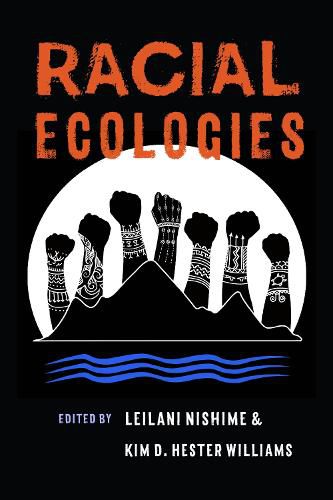Readings Newsletter
Become a Readings Member to make your shopping experience even easier.
Sign in or sign up for free!
You’re not far away from qualifying for FREE standard shipping within Australia
You’ve qualified for FREE standard shipping within Australia
The cart is loading…






From the Flint water crisis to the Dakota Access Pipeline controversy, environmental threats and degradation disproportionately affect communities of color, with often dire consequences for people’s lives and health. Racial Ecologies explores activist strategies and creative responses, such as those of Mexican migrant women, New Zealand Maori, and African American farmers in urban Detroit, demonstrating that people of color have always been and continue to be leaders in the fight for a more equitable and ecologically just world.
Grounded in an ethnic-studies perspective, this interdisciplinary collection illustrates how race intersects with Indigeneity, colonialism, gender, nationality, and class to shape our understanding of both nature and environmental harm, showing how and why environmental issues are also racial issues. Indeed, Indigenous, critical race, and postcolonial frameworks are crucial for comprehending and addressing accelerating anthropogenic change, from the local to the global, and for imagining speculative futures. This forward-looking, critical intervention bridges environmental scholarship and ethnic studies and will prove indispensable to activists, scholars, and students alike.
$9.00 standard shipping within Australia
FREE standard shipping within Australia for orders over $100.00
Express & International shipping calculated at checkout
From the Flint water crisis to the Dakota Access Pipeline controversy, environmental threats and degradation disproportionately affect communities of color, with often dire consequences for people’s lives and health. Racial Ecologies explores activist strategies and creative responses, such as those of Mexican migrant women, New Zealand Maori, and African American farmers in urban Detroit, demonstrating that people of color have always been and continue to be leaders in the fight for a more equitable and ecologically just world.
Grounded in an ethnic-studies perspective, this interdisciplinary collection illustrates how race intersects with Indigeneity, colonialism, gender, nationality, and class to shape our understanding of both nature and environmental harm, showing how and why environmental issues are also racial issues. Indeed, Indigenous, critical race, and postcolonial frameworks are crucial for comprehending and addressing accelerating anthropogenic change, from the local to the global, and for imagining speculative futures. This forward-looking, critical intervention bridges environmental scholarship and ethnic studies and will prove indispensable to activists, scholars, and students alike.